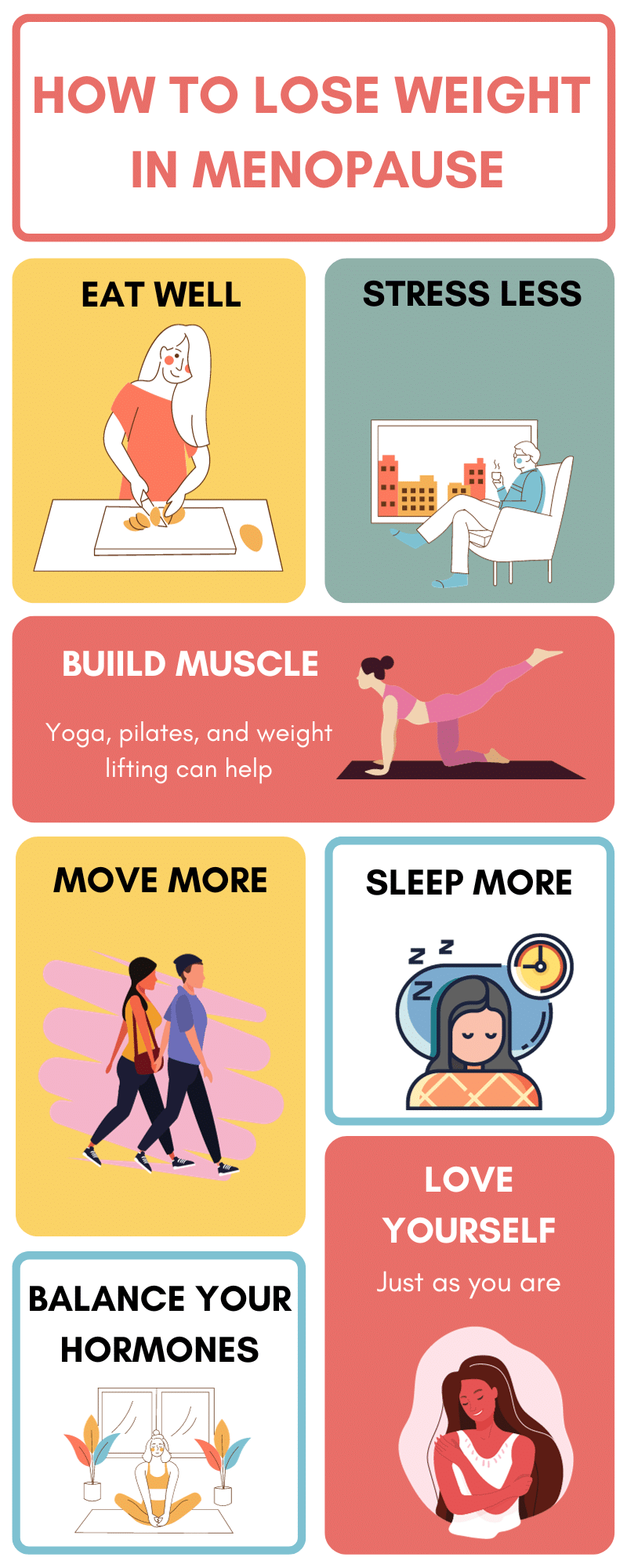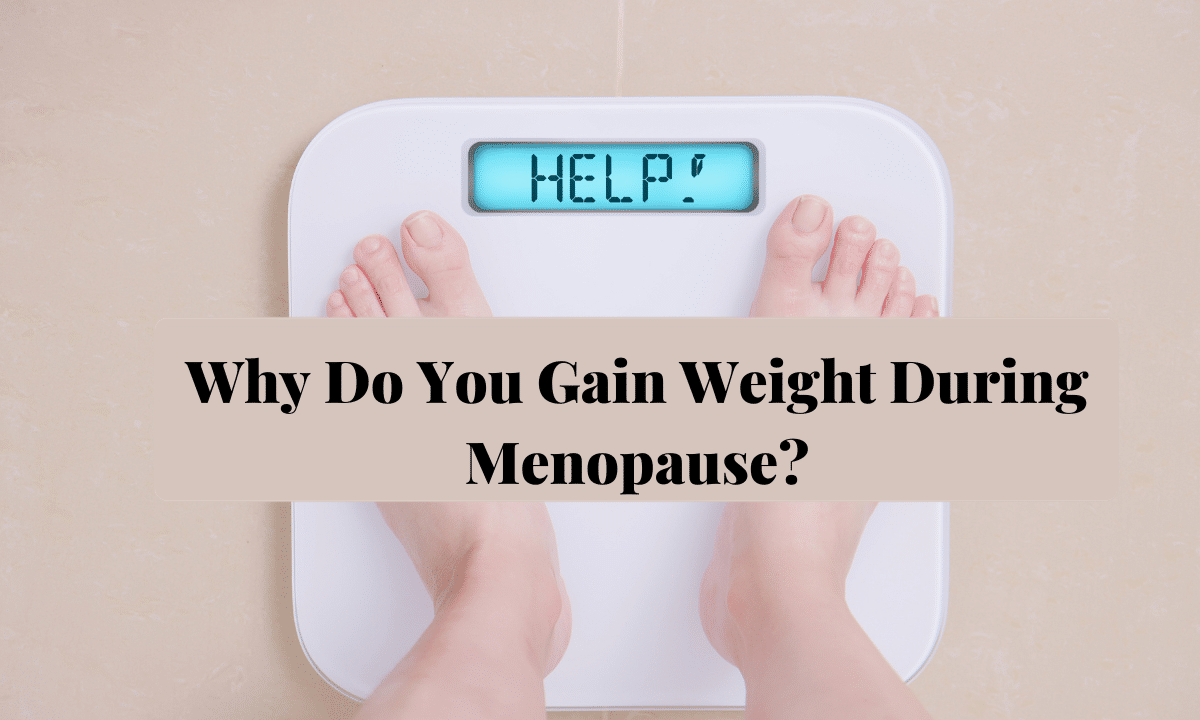Why Do You Gain Weight During Menopause?
Many women are affected by age-related weight gain despite their best efforts to eat healthily and exercise. Most blame it on the slower metabolism related to reaching middle-age years.
Table of Contents
ToggleHowever, there’s more to it than just age. A significant factor that leads to weight gain during this time is menopause. Menopause brings about hormonal changes that can lead to weight gain, especially around the abdomen.
Understanding why you gain weight during menopause is the first step towards managing and potentially reversing this inclination. In this blog post, we will talk about causes and explore practical solutions.
Causes of Weight Gain in Menopause
Muscle Loss
Muscle loss starts as early as your 30s and continues at a rate of 3-5% with every passing decade. Moreover, menopause can change the body’s composition, adding more fat and reducing muscle mass.
Why does muscle loss matter in terms of weight gain?
It matters because muscle burns more calories than fat. The less muscle you have, the fewer calories you burn throughout the day. As a result, you will need to eat less or exercise more to keep the same weight.
Hormonal Changes
The decrease in estrogen levels during menopause leads to changes in body composition and metabolism. Your metabolism slows down, causing your body to burn fewer calories while at rest than before menopause.
Additionally, as menopause approaches, your body produces more cortisol hormone — the stress hormone. The problem with having too much cortisol is that it results in more fat storage and the use of muscle energy, further slowing down the metabolism.
This stress hormone can also cause what is often known as stress belly — the fat stored around the abdomen.
Lastly, high cortisol levels can disrupt sleep, which is essential for weight maintenance.
Insulin Resistance
An important role of estrogen is to help maintain insulin sensitivity, or the ability of your body to respond to insulin. As this hormone declines, it is expected to develop insulin resistance.
This means that for your body to use carbohydrates, it needs additional insulin, which promotes fat storage. Read more about menopause and insulin resistance.
Changes in Activity Levels
Another key factor in age-related weight gain is decreased physical activity levels. Many women’s exercise habits decline as life becomes busy and priority is given to kids, work, caring for aging parents, and other daily activities.
Furthermore, women in their 40s and 50s change the type of exercise they do and often choose walking as their only form of physical activity.
While walking is a great exercise, it may not be enough to maintain muscle mass and metabolic health during menopause.
Changes in Eating and Drinking Habits
Unhealthy eating is the most significant factor in weight gain at any age. Perhaps you haven’t noticed, but you have probably changed your eating habits.
Maybe you are drinking an extra glass of wine, eating a bit more every day, or eating sweets regularly. Unfortunately, increasing your portion sizes a little bit daily will result in extra weight gain over time.
Inadequate Sleep
Getting insufficient sleep or poor quality sleep can have a significant impact on your weight. It is well-documented that menopause disrupts sleep.

When you don’t get enough sleep, it disrupts how your hormones control your appetite and satisfaction. This makes you feel hungrier than if you are well-rested. It also increases cravings for high-calorie, energy-dense foods, leading to weight gain.
Moreover, insufficient sleep can result in increased levels of ghrelin — the hunger hormone — and decreased levels of leptin, the satiety hormone. This imbalance can lead to overeating and food cravings.
Inadequate sleep can also trigger the stress hormone cortisol, resulting in a stress belly.
Read more about how sleep impacts weight.
Menopause-Related Stress & Mood Fluctuations
Let’s not forget that women in midlife can have significant anxiety and volatile mood swings. These problems are frequently paired with poor eating habits, including stress eating.
Depression and stress can also increase the body’s response to biological processes. This creates a hormonal imbalance that can further cause weight gain.
Gut Health
We know that menopause impacts gut health, which in turn can impact weight. New studies suggest that an imbalanced gut microbiota may result in excess fat, slow metabolism, and insulin resistance among menopausal women.
Read: Lose Menopause Weight By Healing Your Gut
Inflammation
New studies show that the transition to menopause is pro-inflammatory and can lead to chronic inflammation.
Inflammation can impact hunger hormones, slowing down metabolism and potentially worsening insulin resistance. Consequently, weight gain becomes easier, which in turn increases inflammation, perpetuating the cycle.
Read more about menopause and inflammation.
Read about inflammation and the weight gain connection.
How to Lose Weight After 40
How to Lose Weight in Menopause
Many middle-aged women may have a healthy weight, so it is possible to lose and maintain weight during this time. However, it takes a different approach than for younger women. It’s possible that what used to work for you does not work anymore.
Let’s review the components of weight loss.
- Eat a well-balanced diet
- Include anti-inflammatory foods
- Heal your gut
- Build lean muscle
- Exercise at least 150 minutes per week
- Sleep more
- Balance your hormones
- Manage stress
- Reduce inflammation
- Heal your gut

Helpful reads:
My Expert Opinion
Weight loss right before and during menopause looks different from weight loss in your 20s and 30s. Beyond healthy eating and physical activity, other factors play an important role.
This is why I often start my nutrition counseling with questions about sleeping and the stress levels of my patients.
I also recommend following a diet that includes anti-inflammatory foods, is low in sugar, and promotes gut healing.
You got this! You can look and feel the way you want to during menopause and beyond.

Dr. Su-Nui Escobar, a Registered Dietitian/Nutritionist in Miami, FL, is dedicated to empowering women in perimenopause and menopause to live healthier, more satisfying lives.
With a doctorate in clinical nutrition from the University of North Florida, she has expertise in menopause and weight loss, including the unique challenges faced by those on weight loss medications.
Su-Nui’s passion for her field is evident in her previous role as the Academy of Nutrition and Dietetics spokesperson.


